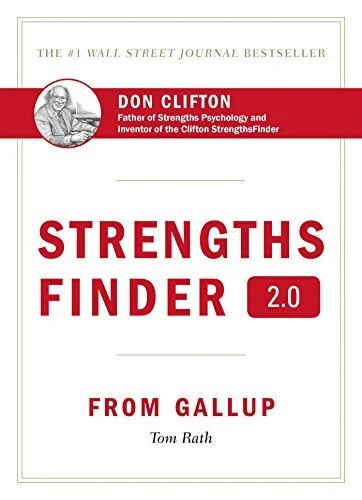Write down your vulnerabilities.
StrengthsFinder is an increasingly popular tool for maximizing the gifts of each person on a team. It involves taking a long(ish) quiz that tells you where you seem to be uniquely gifted.
(Get ready, because what we’re about to do is pretty much the exact opposite of that.)
Follow these steps to get ready and begin this activity:
-
Grab a piece of paper and a pen (or your favorite note-taking app).
-
Set a timer for 5 minutes.
-
Create a list of your vulnerabilities during the allotted time.
-
Where are you weak?
-
Where can you be manipulated, exploited, distracted, and outperformed?
-
If someone was trying to hurt you, where would they aim?
-
-
Share one of your vulnerabilities with your group, once the timer goes off. (If you’re doing the Spotlight alone, you’re off the hook.)
Rejoice in your weaknesses.
We’ll talk about how God does this in the Learn section of this Spotlight, but suffice it to say for now that you can rejoice in these weaknesses, just like the Apostle Paul did.
I will not boast about myself, except about my weaknesses. Even if I should choose to boast, I would not be a fool, because I would be speaking the truth. But I refrain, so no one will think more of me than is warranted by what I do or say, or because of these surpassingly great revelations. Therefore, in order to keep me from becoming conceited, I was given a thorn in my flesh, a messenger of Satan, to torment me. Three times I pleaded with the Lord to take it away from me. But he said to me, “My grace is sufficient for you, for my power is made perfect in weakness.” Therefore I will boast all the more gladly about my weaknesses, so that Christ’s power may rest on me. That is why, for Christ’s sake, I delight in weaknesses, in insults, in hardships, in persecutions, in difficulties. For when I am weak, then I am strong.
2 Corinthians 12:5b–12
A Takeaway
It’s not just acceptable to admit your weaknesses, there’s real power in it.
Take a look at the vulnerability of Jesus.
As you read this section, count how many of these words are about Jesus being able-to-be-harmed.
Surely he has borne our griefs
and carried our sorrows;
yet we esteemed him stricken,
smitten by God, and afflicted.
But he was pierced for our transgressions;
he was crushed for our iniquities;
upon him was the chastisement that brought us peace,
and with his wounds we are healed.
All we like sheep have gone astray;
we have turned—every one—to his own way;
and the Lord has laid on him
the iniquity of us all.He was oppressed, and he was afflicted,
yet he opened not his mouth;
like a lamb that is led to the slaughter,
and like a sheep that before its shearers is silent,
so he opened not his mouth.Isaiah 53:4–7
Next, listen to those same words set to music.
Finally, discuss these verses using the questions below:
-
Did hearing these verses (in this musical form) bring out or emphasize anything else to you?
-
“By his wounds, we are healed,” not by his strength. Do you agree with that idea?
-
Why did Jesus’ wounds “work”? That is, why didn’t he just kill Satan and stand victorious?
-
At the end of the day, who can one’s wounds actually help?
Revisit your list from earlier.
Grab the list of weaknesses/vulnerabilities that you made earlier.
Follow these steps to take the exercise even further. (If you’ve thought of anything else to add, add it right away.)
-
First, add anything else you may have thought of since you first wrote the list.
-
Then circle or bold any of the items on your vulnerabilities list that are inspired by past wounds.
-
Underline any of the items on your list that are currently making your life difficult.
-
Draw a square around or italicize any of the items that are really going to hurt in the future if they are ever exploited—and therefore make you want to protect yourself ASAP.
-
Pause here. Share with the group any new insights about your list or about vulnerabilities that have come through this process.
(Keep your list nearby, as we’ll revisit it again shortly).
Answer this: Are two better than one?
(When it comes to Sith lords in the Star Wars universe, nope.)
Biblically, and when it comes to weakness, yes.
Two are better than one,
because they have a good return for their labor:
If either of them falls down,
one can help the other up.
But pity anyone who falls
and has no one to help them up.
Also, if two lie down together, they will keep warm.
But how can one keep warm alone?
Though one may be overpowered,
two can defend themselves.
A cord of three strands is not quickly broken.Ecclesiastes 4:9–12
Again, grab your list of vulnerabilities. For each item on your list, especially those that you just gave extra attention to in some way, write the name of somebody whose strengths might help you in your vulnerability.
Another Takeaway
Where you can be hurt and where you can be protected are the same places.



